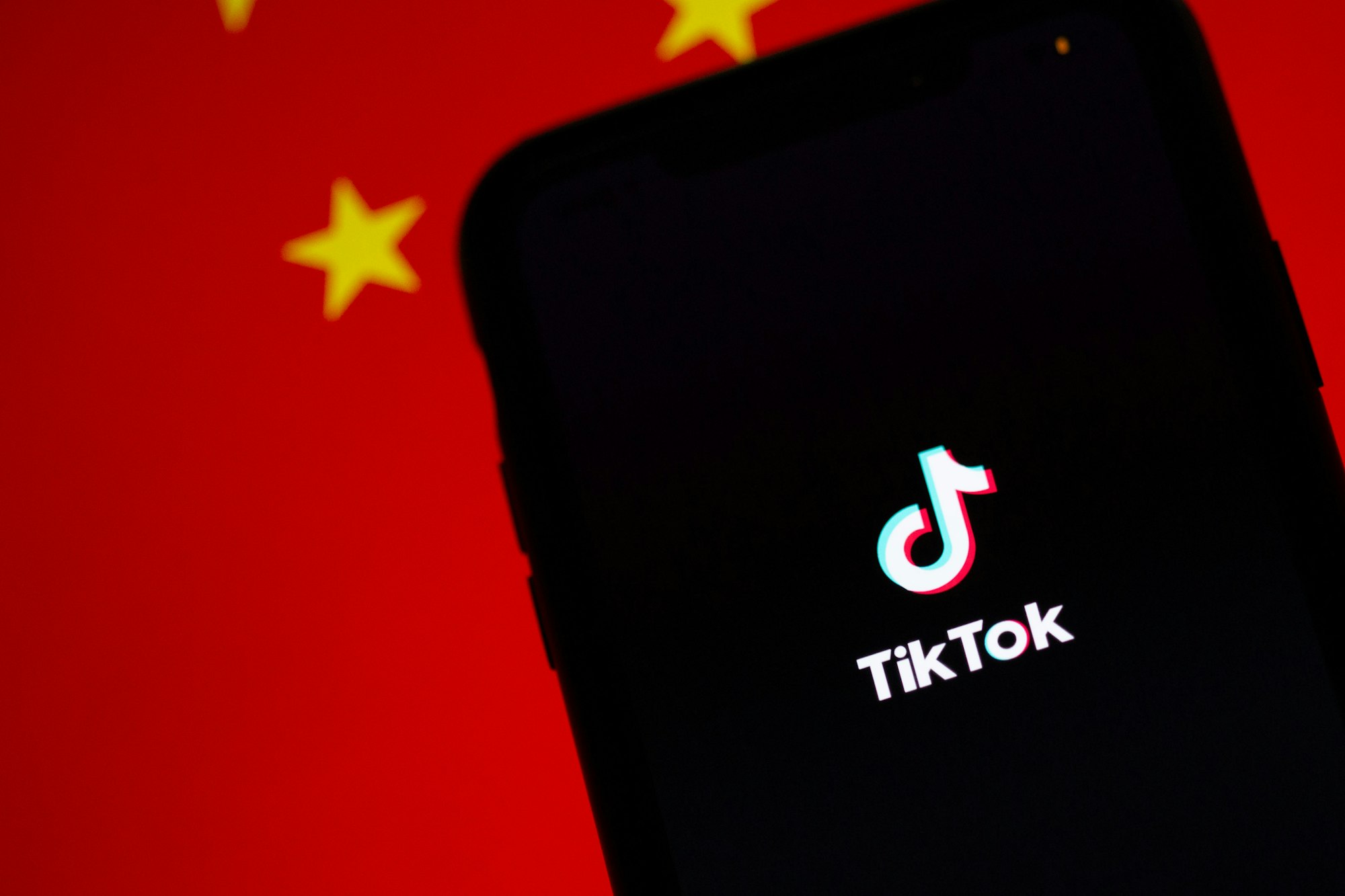The €530 Million Question: How TikTok's Record GDPR Fine Reshapes Global Data Sovereignty

Breaking the digital Cold War wide open: Ireland's landmark penalty against TikTok signals a new era of aggressive data protection enforcement
On May 2, 2025, the Irish Data Protection Commission (DPC) delivered what may be the most consequential cybersecurity ruling of the decade—a staggering €530 million ($601 million) fine against TikTok for illegally transferring European user data to China. This penalty represents far more than a regulatory slap on the wrist; it's a seismic shift in how the West approaches digital sovereignty in an increasingly polarized geopolitical landscape.

The Breach That Broke the Camel's Back
The investigation, which began in September 2021, uncovered systematic violations of the General Data Protection Regulation (GDPR) Article 46(1) regarding international data transfers. But what makes this case extraordinary isn't just the size of the fine—it's the calculated deception that came to light.
Throughout the investigation, TikTok repeatedly assured regulators that European Economic Area (EEA) user data was not stored on Chinese servers. This assertion formed the foundation of the DPC's assessment of TikTok's data protection practices. However, in a stunning reversal that sent shockwaves through the regulatory community, TikTok disclosed in April 2025 that it had discovered in February 2025 that "limited EEA User Data had in fact been stored on servers in China."
The timeline reveals a troubling pattern:
- September 2021: DPC launches investigation
- 2021-2024: TikTok consistently denies storing EU data in China
- February 2025: TikTok discovers EU data on Chinese servers
- April 2025: TikTok finally informs DPC of the breach
- May 2025: €530 million fine imposed

Beyond the Headlines: What Really Happened
The technical details of the violation reveal sophisticated data governance failures. According to Deputy Commissioner Graham Doyle, TikTok failed to demonstrate that European user data remotely accessed by staff in China received protection "essentially equivalent to that guaranteed within the EU."
The data flows in question weren't minor technical oversights. They involved systematic remote access by Chinese employees to European users' personal information, creating what regulators described as an uncontrolled pathway for potential surveillance by Chinese authorities under the country's anti-terrorism, counter-espionage, and national intelligence laws.
Exposed data categories included:
- Personal identifiers and contact information
- User-generated content and behavioral patterns
- Location data and device information
- Social connections and communication metadata
The Geopolitical Chess Game
This ruling represents the culmination of escalating tensions between Western democracies and China over data sovereignty. TikTok's €12 billion "Project Clover" initiative—designed to isolate European data through infrastructure in Norway, Ireland, and the United States—was explicitly dismissed by regulators as insufficient.
The DPC's decision signals that technical safeguards alone cannot overcome fundamental jurisdictional concerns. No matter how sophisticated the encryption or access controls, European regulators have concluded that Chinese legal frameworks fundamentally compromise data protection for EU citizens.
China's Legal Framework: The Root of the Problem
The regulatory conflict stems from China's expansive surveillance laws:
- National Intelligence Law: Requires organizations to support state intelligence work
- Cybersecurity Law: Mandates local data storage and government access
- Data Security Law: Prioritizes national security over privacy rights
- Counter-Espionage Law: Broadly defines espionage to include business activities
These laws create what EU regulators term "materially diverging standards" from European data protection principles, making it legally impossible for Chinese-controlled companies to guarantee EU-level protections.
The Transparency Trap
Beyond data transfer violations, TikTok faced an additional €45 million penalty for transparency failures. Between July 29, 2020, and December 1, 2022, the platform failed to adequately inform users about:
- Which countries received their data
- The possibility of access from China
- The legal basis for international transfers
- Users' rights regarding cross-border data flows
This transparency requirement reflects GDPR's fundamental principle that users must understand how their data moves across borders—a principle that conflicts with the opaque nature of Chinese data governance.
Strategic Implications for Global Business
The TikTok ruling creates unprecedented compliance challenges for multinational corporations operating across the US-China divide. The decision establishes several critical precedents:
1. Corporate Structure Cannot Override Jurisdictional Risk
Despite TikTok's complex corporate structure designed to insulate operations, regulators looked beyond legal entities to assess ultimate control and influence.
2. Technical Safeguards Require Legal Foundations
Encryption, access controls, and geographic restrictions are meaningless without compatible legal frameworks in destination countries.
3. Supply Chain Data Governance Extends Globally
Third-party contractors and service providers must meet the same standards as primary data controllers, regardless of geographic location.
The Broader Industry Impact
This enforcement action reverberates far beyond social media platforms. Industries with significant Chinese operations—including manufacturing, technology, telecommunications, and automotive—face intensified scrutiny over their data handling practices.
Particularly vulnerable sectors include:
- Cloud Service Providers: With Chinese ownership or operations
- IoT Device Manufacturers: Transmitting sensor data to Chinese servers
- Financial Services: Processing payments through Chinese payment systems
- Automotive Industry: Connected vehicles sharing telemetry data
- Healthcare Technology: Medical devices or platforms with Chinese components
The Enforcement Evolution
The TikTok penalty represents the second-largest GDPR fine ever imposed, following Amazon's €746 million penalty in 2021. However, it's the first to explicitly center on geopolitical data sovereignty concerns rather than traditional privacy violations.
This shift reflects GDPR's maturation from a privacy regulation into a tool of digital sovereignty. European regulators increasingly view data protection through the lens of strategic autonomy and national security, not just individual privacy rights.
Corporate Response Strategies
Organizations with Chinese connections must urgently reassess their data governance frameworks:
Immediate Actions:
- Data Mapping: Comprehensive audits of all cross-border data flows
- Legal Assessment: Review of destination country laws and regulations
- Technical Controls: Implementation of privacy-enhancing technologies
- Incident Response: Preparation for regulatory investigations
Strategic Considerations:
- Geographic Segregation: Physical and logical separation of regional data
- Vendor Management: Enhanced due diligence on Chinese suppliers
- Alternative Markets: Reduced dependence on Chinese operations
- Legal Structure: Corporate reorganization to minimize jurisdictional exposure
The Path Forward: Balancing Innovation and Sovereignty
The TikTok ruling forces a fundamental reconsideration of global digital architecture. As data becomes increasingly central to economic and national security, the concept of "data sovereignty" is evolving from technical consideration to strategic imperative.
Three models are emerging:
- Digital Bloc System: Geographic data boundaries aligned with political alliances
- Sovereign Cloud: National or regional data infrastructure requirements
- Technological Decoupling: Separate technology stacks for different geopolitical zones
Conclusion: The New Era of Digital Geopolitics
TikTok's €530 million fine represents more than regulatory enforcement—it's a declaration of digital independence. European regulators have signaled that data protection will not be subordinated to commercial convenience or geopolitical accommodation.
For global corporations, this ruling demands a fundamental shift from compliance-based thinking to sovereignty-aware strategy. The era of frictionless global data flows is ending, replaced by a complex landscape where data governance reflects broader geopolitical realities.
The question facing every multinational corporation is no longer whether they can afford robust data protection—it's whether they can afford to ignore the new rules of digital sovereignty. In this emerging landscape, data isn't just an asset; it's a matter of national security.
As we move deeper into 2025, the TikTok precedent will likely inspire similar enforcement actions across Western democracies, fundamentally reshaping how technology companies operate in an increasingly fragmented digital world. The €530 million fine may be just the beginning of a new chapter in the global cybersecurity war—one where data protection and digital sovereignty have become inseparable.







